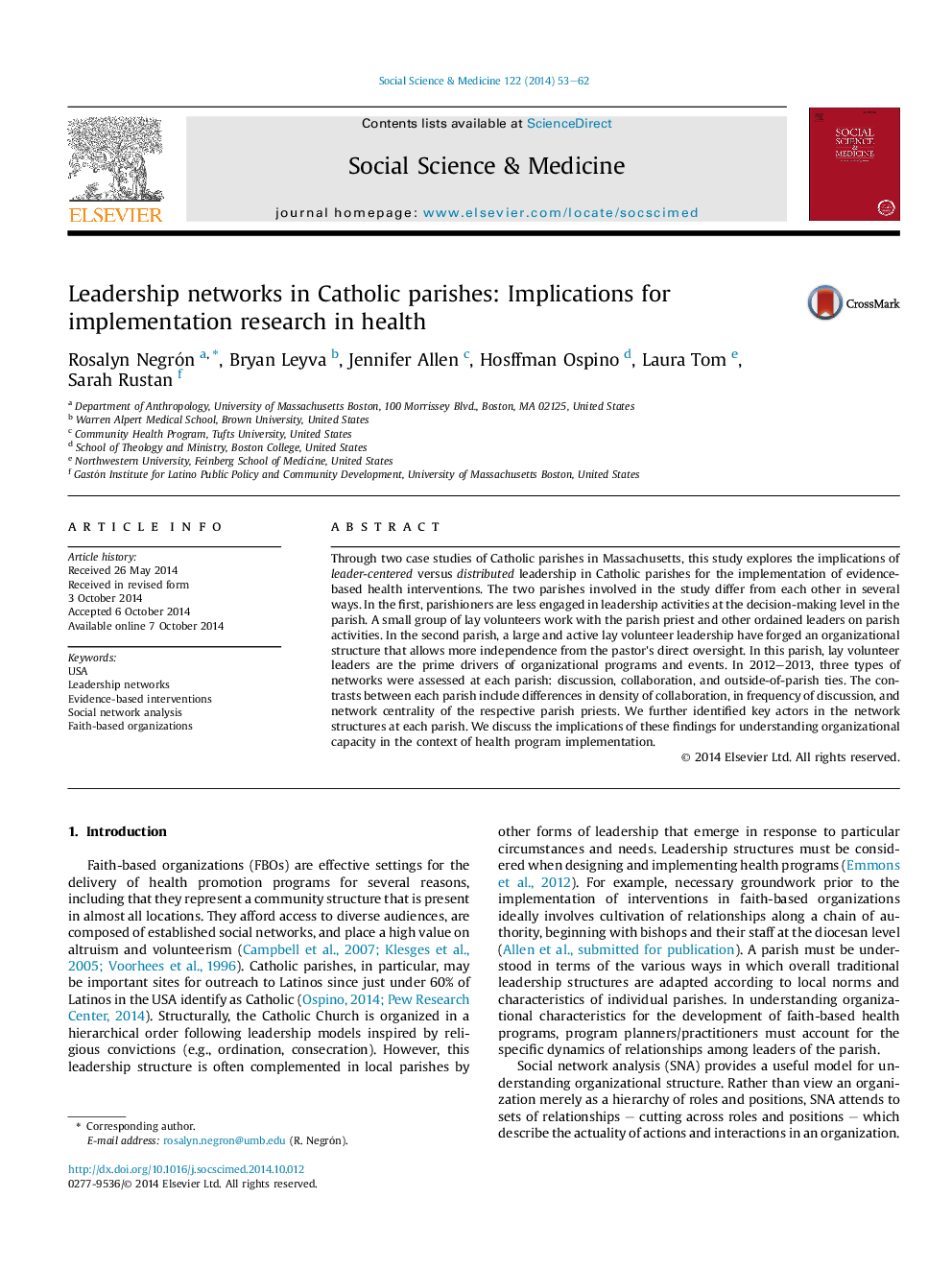| Article ID | Journal | Published Year | Pages | File Type |
|---|---|---|---|---|
| 7334113 | Social Science & Medicine | 2014 | 10 Pages |
Abstract
Through two case studies of Catholic parishes in Massachusetts, this study explores the implications of leader-centered versus distributed leadership in Catholic parishes for the implementation of evidence-based health interventions. The two parishes involved in the study differ from each other in several ways. In the first, parishioners are less engaged in leadership activities at the decision-making level in the parish. A small group of lay volunteers work with the parish priest and other ordained leaders on parish activities. In the second parish, a large and active lay volunteer leadership have forged an organizational structure that allows more independence from the pastor's direct oversight. In this parish, lay volunteer leaders are the prime drivers of organizational programs and events. In 2012-2013, three types of networks were assessed at each parish: discussion, collaboration, and outside-of-parish ties. The contrasts between each parish include differences in density of collaboration, in frequency of discussion, and network centrality of the respective parish priests. We further identified key actors in the network structures at each parish. We discuss the implications of these findings for understanding organizational capacity in the context of health program implementation.
Related Topics
Health Sciences
Medicine and Dentistry
Public Health and Health Policy
Authors
Rosalyn Negrón, Bryan Leyva, Jennifer Allen, Hosffman Ospino, Laura Tom, Sarah Rustan,
